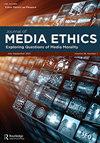The State of Ethics Competencies, Training and Moral Efficacy in Public Relations
IF 1.1
3区 哲学
Q3 COMMUNICATION
引用次数: 0
Abstract
ABSTRACT The Commission on Public Relations Education (CPRE) found that early-career professionals are not meeting their supervisors’ expectations in ethics knowledge. The purpose of this study was to identify what ethics competencies public relations practitioners perceive are essential and how they evaluate themselves and their colleagues regarding mastery of these competencies. The study surveyed 314 U.S. public relations and communication practitioners and revealed they perceive the most important ethics competencies to be integrity, leadership and critical thinking. Other valued competencies included a personal code of ethics or values system and ability to identify ethical issues. Early-career professionals were overconfident regarding their mastery of these skills and abilities, while mid-career and senior professionals were modest in their self-assessments. Practitioners who have obtained accreditation/certifications had more confidence in their preparedness to provide ethics counsel and engaged in ethics counseling more frequently. Recommendations for enhancing personal ethics competencies are provided.公共关系中伦理能力、培训和道德效能的现状
公共关系教育委员会(CPRE)发现,职业生涯早期的专业人员在道德知识方面没有达到主管的期望。本研究的目的是确定公共关系从业者认为哪些道德能力是必不可少的,以及他们如何评估自己和同事对这些能力的掌握程度。这项研究调查了314名美国学生公共关系和传播从业者的调查显示,他们认为最重要的道德能力是正直、领导能力和批判性思维。其他有价值的能力包括个人道德准则或价值体系,以及识别道德问题的能力。职业生涯早期的专业人士对自己掌握这些技能和能力过于自信,而职业生涯中期和高级专业人士在自我评估方面则比较谦虚。获得认可/证书的从业员对提供道德辅导的准备更有信心,并更频繁地从事道德辅导工作。提出了提高个人道德能力的建议。
本文章由计算机程序翻译,如有差异,请以英文原文为准。
求助全文
约1分钟内获得全文
求助全文

 求助内容:
求助内容: 应助结果提醒方式:
应助结果提醒方式:


